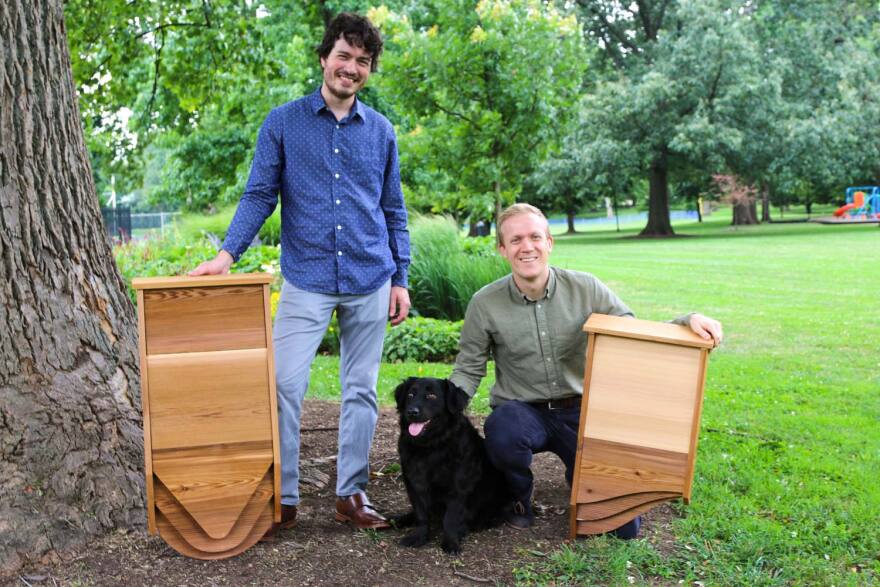With cooler weather here in Virginia, bats head into attics or caves where it’s cool enough to slow their metabolism for hibernation -- but warm enough to prevent freezing. In the spring they’ll emerge, looking for a hot spot, and some will find deluxe accommodations in special houses developed by a Virginia man.
There are 15 different kinds of bats in this state, and they’re struggling to survive because of lost habitat and a deadly fungal disease. That why Christopher Rannefors is building homes for Virginia’s misunderstood mammals.
“We’re just trying to get these nice bat houses into people’s yards to help give bats a safe home to raise their pups in the spring and summer months, " he explains. "Bats, in turn, will help out by eating up a ton of mosquitoes and pests in your yard.”
They can eat hundreds of small bugs an hour, and while they’re a danger to insects, Rannefors argues they’re not much of a hazard to humans.
“There are documented cases of bats having rabies, but just like any wildlife, if you see a sick animal on the ground don’t approach it. You call animal control, and they take care of it.”
Working with one of the nation’s top experts on bats – Merlin Tuttle – he and business partner Harrison Broadhurst have designed a variety of bat BnBs that can accommodate as many as 200 animals. To get them ready for summer occupancy, Rannefors says it’s best to put the boxes up now, so they can absorb the smells of the area and building where they’re mounted.
“You want to put it ideally between 15-20 feet up, and you want to have at least 6-7 hours of direct sunlight every day, because they really like it hot in those very tight, thin chambers.”
But, he adds, they’re not keen on trees.
“If you have branches near the bat house, that allows a predator to perch, and then when the bats come out towards the evening, the predator can quickly swoop in and grab the bat.”
But once they’ve settled into a bat BnB, he adds, residents are likely to return year after year, which is why the University of Virginia is one of the new company’s biggest customers.
“They knocked down a couple of old dorms not too long ago, and they’ve been building new ones, and when they knocked down the old dorms they noticed that a lot of bats had been living in parts of the buildings, and now all of a sudden they didn’t have any homes, so we actually are finalizing a deal with the facilities team at UVA to put up bat houses.”
It’s too soon to say how successful the business will be. Bat BnBs are not cheap, selling for between $200 and $1,650, but the public seems to like the idea of this natural form of mosquito control. The company raised $76,000 through a crowd sourcing website – more than 300% of its goal.

